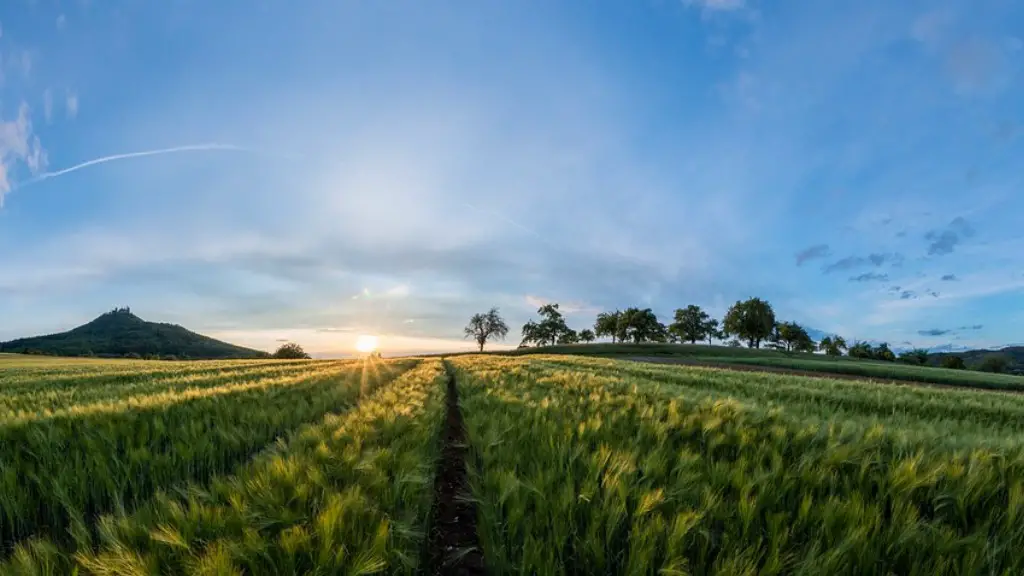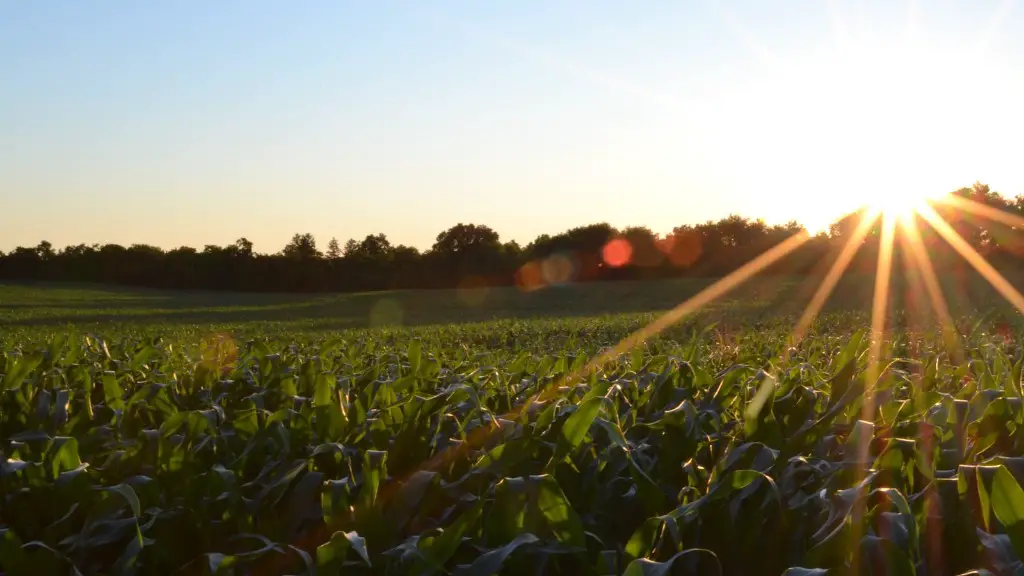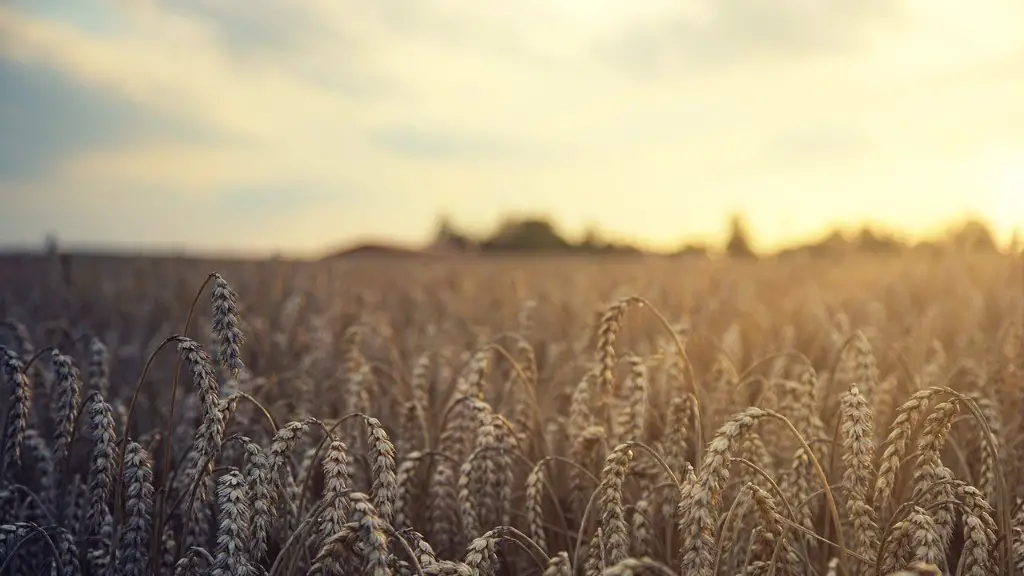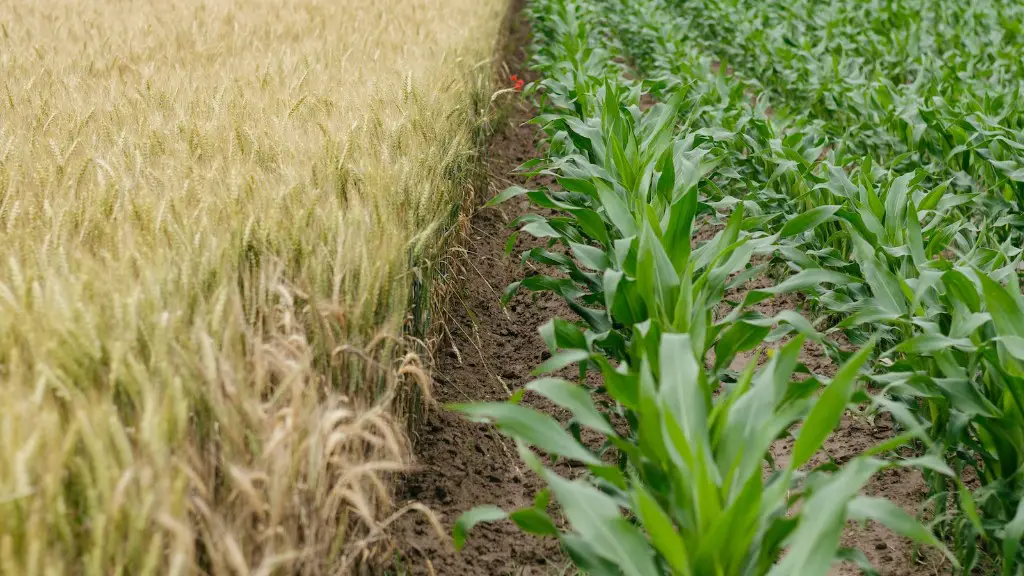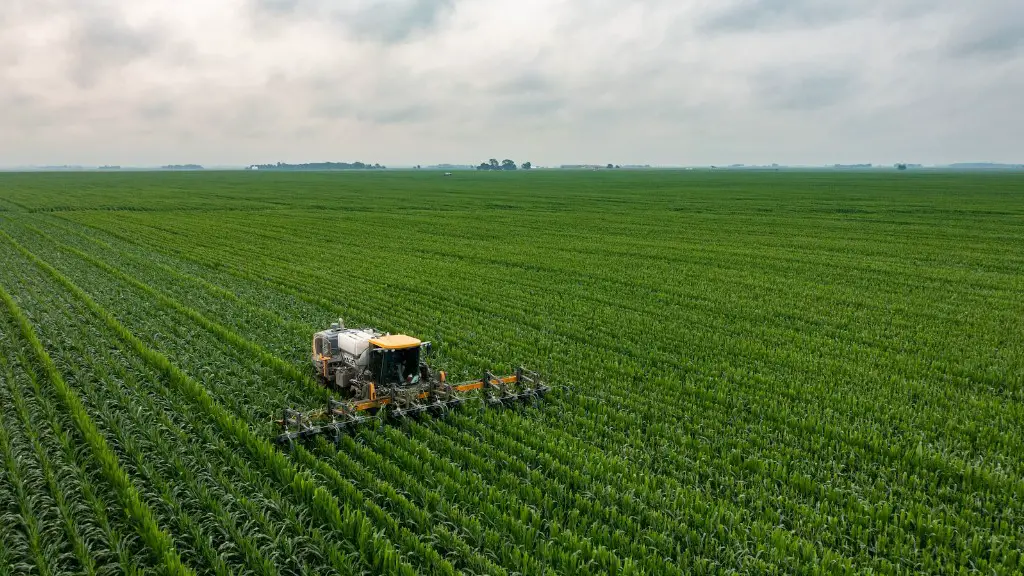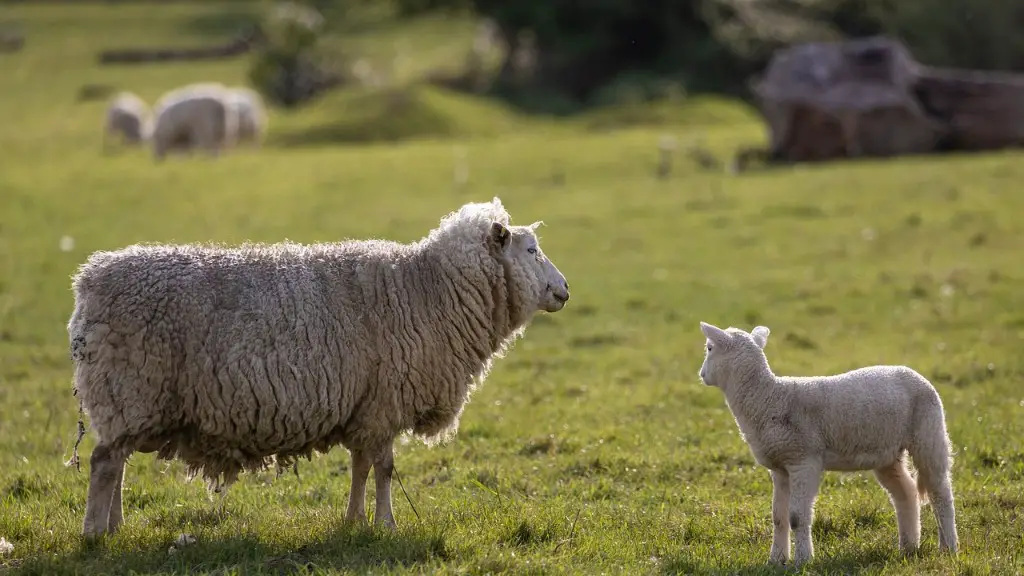There are many factors to consider when choosin an agriculture ETF. Some of the key factors include index composition, expense ratio, and performance.
The iShares Global Agriculture ETF (AGRO) offers a diversified portfolio of agricultural companies with exposure to different sub-sectors and regions. The fund has a low expense ratio of 0.48% and has performed well, outperforming the MSCI ACWI Agriculture Index over the past five years.
The VanEck Vectors Agribusiness ETF (MOO) also provides broad exposure to the agriculture sector with holdings in companies across the value chain, from seed and fertilizer companies to livestock and meat processors. The fund has a slightly higher expense ratio of 0.55%, but has also outperformed its benchmark over the long term.
Finally, the Teucrium Agricultural Fund (TAGS) is a more volatile option that invests in agricultural commodities rather than companies. The fund tracks a proprietary index of eight agriculture commodities, including corn, wheat, and soybeans. The expense ratio is 0.75%.
The best agriculture ETF is the one that best meets your investment goals. Some factors to consider when choosing an agriculture ETF include the type of crops the ETF tracks, the geographic region the ETF targets, and the size and stability of the companies the ETF invests in.
Are agricultural ETFs a good investment?
If you’re looking to invest in agriculture, ETFs could be a smart move. You can choose from a variety of ETFs that invest in different aspects of agriculture, so you can find one that fits your investment strategy. Make sure to do your research and pick an ETF that has a good track record and low fees.
Farmland Partners Inc is a publicly traded company in the United States. The company’s stock is held in 34 US-traded exchange-traded funds (ETFs). FPI has approximately 46 million shares in the US ETF market. The Vanguard Total Stock Market ETF (VTI) is the largest ETF holder of FPI, with approximately 141 million shares.
What is the best agricultural stock to invest
There are a few agriculture stocks that look promising for investment in 2023. Corteva, Inc. (NYSE: CTVA) and Nutrien (NYSE: NTR) both have large market caps and decent dividend yields. FMC Corp (NYSE: FMC) is a smaller company, but it has a very high dividend yield. Tyson Foods (NYSE: TSN) is a larger company with a higher dividend yield. All four of these stocks look like they could be good investments in 2023.
The agricultural commodity market is a great place to trade futures contracts. You can buy and sell contracts on any of the six exchanges that allow agri commodity trading. Two of these exchanges, the CME Group and the ICE Futures Exchange, are specifically focused on agricultural commodities trading.
What is the most successful ETF?
These are the 100 highest 5 year ETF returns as of June 2020. As you can see, semiconductor and technology stocks have been some of the best performers over the past 5 years. If you’re looking for ETFs to invest in for the long term, these are some good options to consider.
Investing in farmland can be a great way to get started in the agricultural industry. There are a few different ways to go about it, and each has its own set of benefits and drawbacks. Here are five of the most common ways to invest in farmland:
1. Owning land directly: This is the most traditional way to invest in farmland, and it can be a great way to get started. The biggest advantage of owning land directly is that you have complete control over what happens on the property. You can choose to farm it yourself, lease it out to someone else, or even just hold onto it as an investment. The downside is that it can be expensive to buy land, and you may not have the expertise to manage it effectively.
2. Farmland REITs: A REIT, or Real Estate Investment Trust, is a company that owns and manages farmland. Farmland REITs offer investors the chance to own a portfolio of properties without having to deal with the day-to-day management. The downside is that you will not have as much control over the properties, and your returns will be subject to the performance of the REIT.
3. Agricultural stocks: Another way to invest in the agricultural industry is
Does Warren Buffett invest in farmland?
There are a number of reasons why investors like Warren Buffett, Bill Gates, and Michael Burry might invest in farmland, yet most individual investors don’t.
One reason is that farmland is a more tanglible asset than many other types of investments. Farmland is a physical piece of property that you can see and touch, unlike stocks or bonds, which are paper assets. This can make farmland a more appealing investment for some people.
Another reason is that farmland is a relatively safe investment. Farmland prices have been steadily increasing for the past few decades, and they’re not likely to crash like the stock market can. Additionally, farmland is a finite resource, so it’s not subject to the same kind of price fluctuations as other commodities.
Lastly, investing in farmland can be a way to diversify your investment portfolio. If you only invest in stocks and bonds, you’re susceptible to market volatility. But if you add farmland to your portfolio, you can mitigate some of that risk.
Despite these advantages, most individual investors don’t invest in farmland. One reason is that it can be expensive to buy a piece of farmland, and it can be even more expensive to maintain it. Farmland is also a fairly ill
DBA is the biggest farmland ETF with nearly $1 billion in assets under management. CornFund ETV (CORN) tracks an index of various corn futures contracts. Agricultural Fund (TAGS) combines four of the best farmland ETFs into one fund.
Are farmland REITs worth it
Farmland REITs can offer some great returns, thanks to the rental income they receive fromFarmland. This can be a great way to invest in farmland without actually purchasing land. You can also earn dividends on these REITs, which can be a great way to boost your portfolio.
1. Cargill:
Cargill is one of the world’s largest agricultural companies with over 150,000 employees in 70 countries. The company provides food, agricultural, financial and industrial products and services to the world.
2. The Archer-Daniels-Midland Company (ADM):
The Archer-Daniels-Midland Company is a global leader in agricultural processing and food ingredient manufacturing. The company has over 32,000 employees in more than 170 countries.
3. Bayer:
Bayer is a global life science company with a focus on agriculture. The company has over 115,000 employees in over 190 countries.
4. John Deere:
John Deere is a leading manufacturer of agricultural equipment. The company has over 62,000 employees in more than 160 countries.
5. CNH Industrial:
CNH Industrial is a global leader in the design, manufacture and distribution of a range of agricultural and construction equipment. The company has over 59,000 employees in more than 190 countries.
Which agriculture is most profitable?
Dairy farming is an extremely profitable agricultural business idea. Not only does it produce milk, but it also produces manure. There is a high demand for organic dairy products all year round, such as milk, cheese, curd, cream and much more.
Farmland is a great opportunity for creating wealth in both the short term and the long term. The land parcel itself is a hard asset that typically maintains its value in your investment portfolio. Its low-risk nature can help diversity your holdings and balance out some of your riskier stock market investments.
What is the number 1 agricultural commodity
California is known for its abundance of agricultural commodities, and dairy products, milk, grapes, almonds, cattle, and calves are some of the state’s top products. California produces more than half of the United States’ dairy products, and its grapes are used to make wine, juice, and other products. The state’s almonds are used in a variety of products, including candy, ice cream, and cosmetics. California’s cattle and calves are used for meat, milk, and other products.
The United States is one of the world’s top producers and exporters of agricultural products. In recent years, the leading agricultural export products in terms of value have been bulk commodities, including soybeans, corn, and wheat. Other top US exports of high-value products include feeds and fodder, beef and veal (fresh or frozen), and pork. The United States is also a major exporter of processed foods, including snack foods, prepared meats, and dairy products.
What is the best ETF for food commodities?
The Teucrium Soybean, Corn, and Wheat ETFs are some of the top-performing agricultural commodities ETFs. These ETFs invest in futures contracts for soybeans, corn, and wheat, respectively. These commodities have performed well over the past year.
Exchange-traded funds (ETFs) offer a convenient way to invest in a basket of securities, and can be a cost-effective way to build a diversified portfolio. If you’re looking for ETFs to buy now, here are seven to consider.
Vanguard 500 Index Fund (NYSEMKT:VOO) is an ETF that tracks the S&P 500 Index, giving you exposure to large-cap U.S. stocks. With over $7 trillion in assets, it’s the largest ETF in the world.
Invesco QQQ Trust (NASDAQ:QQQ) tracks the tech-heavy Nasdaq-100 Index, giving you exposure to some of the largest and most innovative companies in the world.
Vanguard Growth Fund (NYSEMKT:VUG) invests in large- and mid-cap U.S. stocks that are expected to grow at above-average rates.
Avantis Small-Cap US Value ETF (NYSEMKT:AVUV) provides exposure to small-cap U.S. stocks that are undervalued by the market.
These are just seven of the many ETFs available to invest in today. When choosing an ETF
Final Words
The answer to this question may depend on the individual investor’s goals and objectives. For example, some investors may prefer an agriculture ETF that is focused on a specific region or country, while others may prefer an ETF that tracks a broad index of agricultural commodities. Some investors may also prefer an ETF with a lower expense ratio or one that is more actively managed.
From the research conducted, it seems that the best agriculture ETF is the Teucrium Agricultural Fund. This is due to its lower expense ratio and its focus on agriculture commodities.
